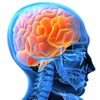eBRAIN program to provide rehabilitation for cerebral palsy
Children with cerebral palsy and acquired brain injuries across Queensland will be the first in Australia to experience the pioneering new program, eBRAIN.
The University of Queensland Cerebral Palsy and Rehabilitation Research Centre (QCPRRC), will launch the eBRAIN program in May 2012, with assistance from a $1million Queensland Government grant and a matching $1million philanthropic donation from the Merchant Charitable Foundation.
The revolutionary eBRAIN program uses innovative, cost effective rehabilitation therapies delivered at home via the national broadband network (NBN).
QCPRRC Scientific Director Professor Roslyn Boyd said there was no other program like this in Australia that delivered a multi-modal program using a combination of physical activity, cognitive challenge and manipulation to enhance and drive neuroplasticity (remodeling the brain) for children with cerebral palsy and acquired brain injury.
“The eBRAIN program allows children to use an interactive web-based application from their own home,” Professor Boyd said.
“It means it is more cost effective as children don’t have to visit several specialised therapists and it’s more accessible for working parents and families who live remotely.”
“We are very excited about being able to offer a program that will significantly improve the current costly neuromodulation therapies for children, as well as further develop telehealth as the way of the future for more effective rehabilitation.”
The first program Mitii “Move it to improve it” has been developed in Denmark and QCPRRC will test the effectiveness of the program in two clinical trials for children with cerebral palsy or acquired brain injury.
The program brings together a unique team of research expertise and resources in early life neurorehabilitation and neuroimaging that is unrivalled in Australia.
The eBRAIN program team includes Associate Professor Stephen Rose and Professor Paul Colditz (neuroimaging and perinatal care) from the UQ Centre for Clinical Research (UQCCR); Professor Jenny Ziviani (occupational therapist) from Queensland Health and the School of Health and Rehabilitation Sciences (UQ); Associate Professor Anthony Smith from the UQ Centre for Online Health, Dr Lynne McKinlay (paediatric rehabilitation specialist), Royal Children’s Hospital and Professor Paul Scuffham, a health economist from Griffith University.
A novel component of the eBRAIN rehabilitation program will be utilisation of cutting edge neuroimaging to measure how training changes the brain.
“Advanced neuroimaging and medical image analysis allows us to measure reorganisation of the brain in response to the training paradigms,” Professor Rose said.
“This not only provides a quantitative framework for determining the effectiveness of training but importantly, provides unique insight into how training modulates brain reorganisation, often termed neural plasticity.”
(Source: University of Queensland)
More Information
 | For more information on brain health, including the anatomy of the brain, the effects of nutrition and exercise on the brain, and the effect of mental activity on health, see Brain Health. |
Dates
Tags
Created by:

 Login
Login














